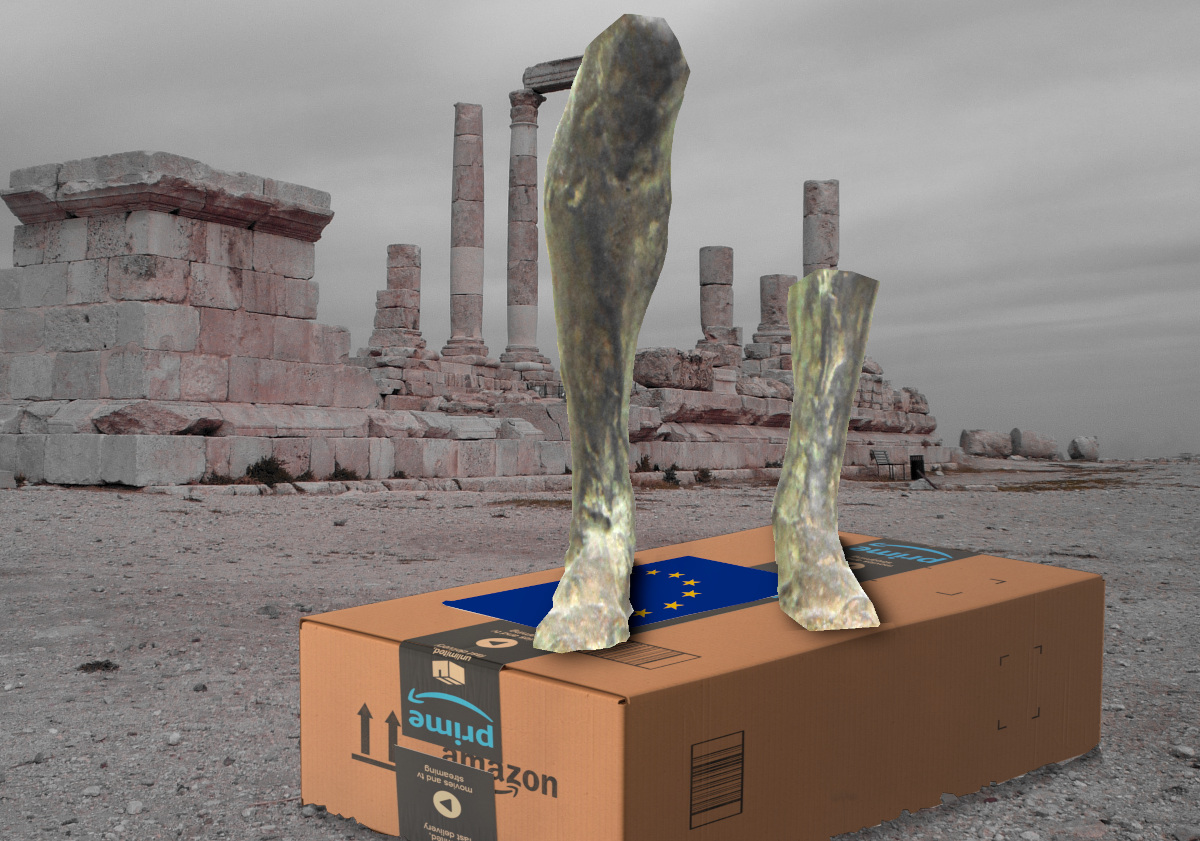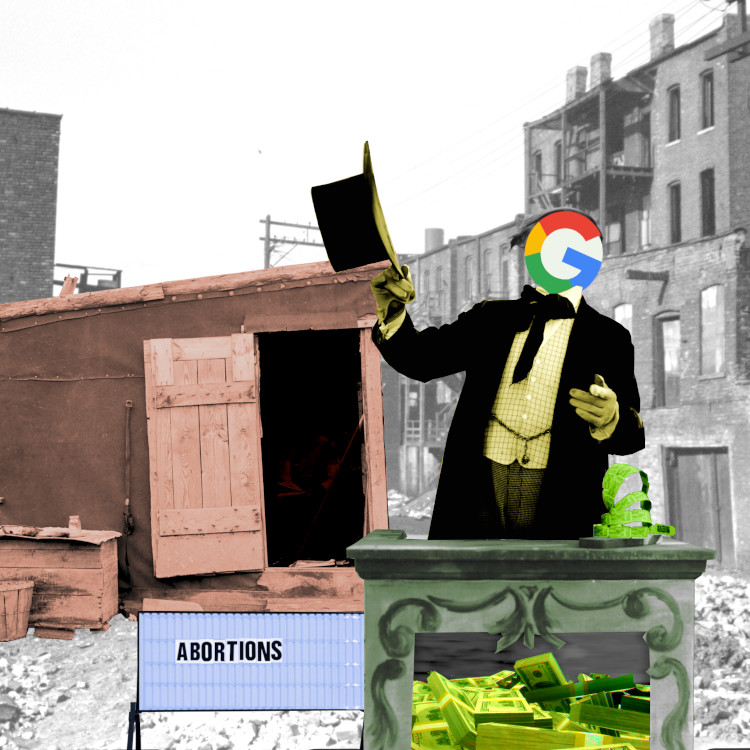Amazon is a perfect #enshittification parable - platforms subsidize end users until they're locked in, then make life good for business customers at users' expense, until *they're* locked in, then claw back all the value they can, leaving just enough to keep the lock-in going.
1/
1/

If you'd like an essay-formatted version of this thread to read or share, here's a link to it on pluralistic.net, my surveillance-free, ad-free, tracker-free blog:
pluralistic.net/2023/06/14/fly…
2/
pluralistic.net/2023/06/14/fly…
2/
In a new report for @SOMO, @margaridasilva2 describes how the end-stage enshittification of Amazon is playing out in the #EU, with Amazon repeating its US playbook.
3/
3/
Amazon gouges small businesses who have no choice but to use the platform in order to reach its locked-in customers, making European customers and European sellers poorer:
somo.nl/amazons-europe…
4/
somo.nl/amazons-europe…
4/
The mechanism for this isn't a mystery. Amazon boasts about it! They call it their #flywheel: first, customers are lured into the platform with low prices, especially through #Prime.
5/
5/
Prime is an annual pre-payment for a year's shipping, which virtually guarantees customers will start their shopping on Amazon. Because customers now start their buying on Amazon, sellers have to be there.
6/
6/
The increased range of goods for sale on Amazon lures in more buyers, who lure in more sellers, with both sides holding each other hostage:
vimeo.com/739486256/00a0…
7/
vimeo.com/739486256/00a0…
7/
This flywheel creates a vicious cycle, starving local retail so that customers can't get what they need from brick-and-mortar shops, which funnels sellers into offering their goods for sale on Amazon.
8/
8/
The less choice customers and sellers have, the more Amazon can abuse both to pad its bottom line.
There are 800k EU sellers on Amazon, and they have seen the junk-fees Amazon charges them skyrocket, to the point where they have to raise prices or lose money on each sale.
9/
There are 800k EU sellers on Amazon, and they have seen the junk-fees Amazon charges them skyrocket, to the point where they have to raise prices or lose money on each sale.
9/
Amazon uses both tacit and explicit "#MostFavoredNation" deals to hide these price-hikes. Under MFN, sellers must not allow their goods to be sold at a lower price than Amazon's. When they hike prices to cover Amazon fees, they raise them everywhere:
pluralistic.net/2023/04/25/gre…
10/
pluralistic.net/2023/04/25/gre…
10/
It's not hard to understand why Amazon would raise its fees: the company has an effective e-commerce monopoly. Like #Ozymandias, they ran out of worlds to conquer, so their growth has to come from squeezing suppliers and/or raising prices, not bringing in new customers.
11/
11/
This is likewise true of mobile companies like Apple and Google, who ran out of people who are so excited about incremental mobile hardware gains that they'll buy a new phone every year, which means growth has to come from squeezing app vendors:
tbray.org/ongoing/When/2…
12/
tbray.org/ongoing/When/2…
12/
This is likewise true of the streaming companies, which is why Netflix is cracking down on "password sharing":
pluralistic.net/2023/02/02/non…
13/
pluralistic.net/2023/02/02/non…
13/
It's true of the movie studios. That's why they want to zero out their wage bills by replacing writers with automatic plausible sentence generators to write stupid movies that they think we'll still pay to see because there won't be anything else:
pluralistic.net/2023/05/06/peo…
14/
pluralistic.net/2023/05/06/peo…
14/
It's certainly true of Uber, which is why they've double the cost of a taxi ride and halved the wages they pay drivers:
pluralistic.net/2023/04/12/alg…
15/
pluralistic.net/2023/04/12/alg…
15/
Monopolies "grow" by making their customers and suppliers worse off. But they have to be careful about this: if it's obvious that you're using your market power to screw buyers, you can get in trouble with competition regulators.
16/
16/
That's because the only part of #antitrust law that the neoliberal project left intact is "consumer welfare" - the idea that monopolies should only face enforcement when they raise prices and/or lower quality:
pluralistic.net/2022/10/10/pla…
17/
pluralistic.net/2022/10/10/pla…
17/
This focus on price-hikes has given monopolists a free hand to squeeze *suppliers* and *workers*, because a monopolist - from #Walmart to Amazon - can claim that squeezing your workers and suppliers is necessary to enhancing consumer welfare.
18/
18/
The less you pay to produce a product, the cheaper you can price it.
When a company has a lot of seller power, we call it a monopolist. When it has a lot of buying power, we call it a #monopsonist.
19/
When a company has a lot of seller power, we call it a monopolist. When it has a lot of buying power, we call it a #monopsonist.
19/
No one ever made a bestselling, family-destroying board game called "#Monopsony" so most people haven't heard of the concept. But monopsony is every bit as dangerous as monopoly, and monopsonists find it far easier to acquire market power than monopolists.
20/
20/
Few suppliers can afford to have even 10% of their sales disappear overnight, so a buyer who accounts for 10% of your sales can demand deep discounts and other favorable terms.
21/
21/
Amazon is a monopolist, but it's also a powerful, ruthless monopsonist. For example, its audiobook division, #Audible, has a 90+% market-share. It used that market-power to steal at least $100m from creators, in a scandal dubbed #Audiblegate:
pluralistic.net/2022/09/07/aud…
22/
pluralistic.net/2022/09/07/aud…
22/
For Europe's 800k sellers who rely on Amazon to reach their customers, the monoposony conditions are blatant and shameless. Take listing fees: Amazon's "flywheel" pitch claims that as the company grows, it achieves "economies of scale" that can lower its cost basis.
23/
23/
But Amazon's listing fees haven't changed, even as the company undewent explosive EU growth (remember, sellers whose Amazon fees exceed their margins have to pass those fees onto buyers, and raise their prices everywhere else to satisfy the Most Favored Nation requirement).
24/
24/
Amazon books the revenues from these fees - and other junk-fees it extracts from sellers - in #Luxembourg, an EU member nation that provides a tax haven to multinational businesses that want to maintain the fiction that they operate their businesses out of the tiny kingdom.
25/
25/
There is sharp competition in the EU to offer the most servile, corrupt environment for multinationals, and Luxembourg is a leader, along with Cyprus, Malta and, of course, Ireland:
pluralistic.net/2023/05/15/fin…
26/
pluralistic.net/2023/05/15/fin…
26/
But at least listing fees haven't gone up, unlike other fees, which have climbed sharply. Amazon falsely claimed that its additional revenues from fees were the result of growth by independent sellers, which Amazon pegged at 65%.
27/
27/
Later, the company admitted that the true growth figure was 22%. Meanwhile, fees are up *85%*.
The true growth figure might be lower still. Amazon refuses to show the math behind its growth figures, or even say which sellers and sales are included in the figure.
28/
The true growth figure might be lower still. Amazon refuses to show the math behind its growth figures, or even say which sellers and sales are included in the figure.
28/
The SOMO report cites research by @juokaz of the e-commerce research firm @MarketplacePuls, who finds that sellers are now giving *50%* of their gross revenues to Amazon, an increase of 10% over the past five years across the whole EU.
29/
29/
However, different EU (and ex-EU) countries have experienced much steeper increases in fees - in the UK, fees have nearly doubled (up 98%), and in France, fees more than doubled (up 115%).
30/
30/
Many of these increases come from the #FulfilmentByAmazon (#FBA) program, which is promoted as an optional service, but which is really obligatory.
31/
31/
Careful research shows sellers who warehouse, pack and ship their own goods get banished to the depths of search results, even if they have ratings, costs and times competitive with FBA. This is especially true of the "buy box" that lands at the top of most searches.
32/
32/
The company refuses to disclose how buy box positioning is determined, but 90% of products in the buy box pay for FBA.
33/
33/
Amazon has used #excuseflation to hike its FBA prices, blaming higher energy prices for price hikes that predated the Russian invasion of Ukraine, and blaming covid for price hikes that predated the pandemic.
34/
34/
Italy's competition authority did yeoman service in uncovering the sleaze of FBA, publishing an investigation showing how Prime and buy box made the notionally "optional" FBA into a must-have for merchants, meaning that Amazon can jack up FBA prices without losing business.
35/
35/
Another notable source of gouging came in response to the UK and France adopting digital services taxes, which were meant to make up for the tax-base erosion enabled by Luxembourg's flouting of EU tax law.
36/
36/
Amazon passed these taxes through to its merchants, without seeing a decrease in the number of sellers using its platform - an unmistakable sign of market power. If you can raise prices without losing customers, then, by definition, your customers have nowhere else to go.
37/
37/
I've previously written about how Amazon's $31b/year "advertising" market isn't really advertising - rather, it's a payola scheme that auctions off the top of a search-listing to the merchant with the most to spend:
pluralistic.net/2022/11/28/ens…
38/
pluralistic.net/2022/11/28/ens…
38/
This is how you get a simple search like "cat beds" returning results whose first screen is 100% ads, and whose next five screens are 50% ads, many of them for *dog* products:
washingtonpost.com/technology/int…
39/
washingtonpost.com/technology/int…
39/
Auctioning off search results means that every time you search for something you want, you have to wade through screen after screen of listings for products whose vendors spent more on advertising, leaving less to spend on making quality goods.
40/
40/
This is as true in the EU as it is in the US. The report shows that European merchants are required to spend ever-larger sums to show up in results for the exact products they sell, leaving them with a choice between making less money, raising prices, or skimping on quality.
41/
41/
But even the "winners" of Amazon's gladiatorial combat among vendors still lose. Amazon uses an automated product removal process to delete some or all of a merchant's products, without warning or explanation, and no one at Amazon will explain what a merchant did wrong.
42/
42/
That remains true even if a vendor pays for Amazon's "marketplace consultant" service - ask these paid Virgils why you've been cast into Amazon's pit, and they'll shrug their shoulders (and bill you for it).
43/
43/
And even if you can navigate the junk fees, the Kafka-as-a-service removals, the war of all sellers against all sellers for search primacy...you still lose.
44/
44/
Merchants told SOMO that a product that survives Amazon's gauntlet is likely to be cloned by Amazon and sold as an Amazon Basic or other house-brand product.
45/
45/
Amazon doesn't charge itself 50% junk fees, so it can always underprice the vendors it knocks off, and give its own products permanent top-of-search placement.
46/
46/
Amazon founder Jeff Bezos once testified under oath before Congress that this doesn't happen - and then refused to return to Congress when multiple vendors showed evidence that he'd lied:
washingtonpost.com/business/2021/…
He *definitely* lied:
reuters.com/investigates/s…
47/
washingtonpost.com/business/2021/…
He *definitely* lied:
reuters.com/investigates/s…
47/
Amazon has faced investigations and enforcement in the EU over this, and settled a claim with a promise to "not use non-public seller data to compete with sellers."
48/
48/
Given the company's record of broken promises on this score and the difficulty of catching them cheating, it's pretty naive to think they'll stick to this.
49/
49/
The report quotes Thomas Höppner, a lawyer who has represented small businesses that Amazon screwed over. Höppner says the problem is that the EU evaluates Amazon's bad deeds on a "case-by-case" basis, missing the big picture.
50/
50/
> By the time one identified problem was seemingly solved, Amazon had long made amendments elsewhere with the same effect. We require a more holistic approach that considers the entire Amazon ecosystem and the various interdependencies within.
51/
51/
But the EU's enforcement approach is about to change significantly. The EU just passed the #DigitalMarketsAct (#DMA), which imposes a bunch of obligations on Amazon:
* allowing sellers to offer their products on other marketplaces at different prices (Article 5.3),
52/
* allowing sellers to offer their products on other marketplaces at different prices (Article 5.3),
52/
* not obliging business users to pay for one of its services in order to use its platform (Article 5.8),
* limiting the way Amazon uses non-public seller data to compete with them (Article 6.2)
53/
* limiting the way Amazon uses non-public seller data to compete with them (Article 6.2)
53/
* preventing Amazon from giving top billing in search results to its own products or sellers that have acquired extra Amazon services (Article 6.5)
54/
54/
The report concludes with a suite of recommendations for improving EU enforcement. First, they argue for a return to traditional competition law, abandoning the "consumer welfare standard" that is so friendly to monopsonies and their abuses of suppliers and workers.
55/
55/
They call for a probe into Amazon's Most Favored Nation deals ("fair pricing policy"), the practice of sponsoring search results, and spiraling fees. They want the EU to adequately fund DMA enforcement, with "measures to prevent regulatory capture."
56/
56/
And they want Amazon to publish clear explanations for how search results, buy box placement, and other practices hidden behind a veil of secrecy.
57/
57/
Amazon will doubtless claim that disclosing how those systems work will make it easier for spammers and scammers to game their way to the top of search results.
58/
58/
We should be skeptical of this claim - content moderation is the last domain where anyone takes the bankrupt idea of #SecurityThroughObscurity seriously:
doctorow.medium.com/como-is-infose…
59/
doctorow.medium.com/como-is-infose…
59/
Finally, the report calls for breaking up Amazon, forcing it to choose between being a platform seller or a platform user, calling this the only way to "prevent the conflicts of interest between its role as a platform intermediary, seller, and service provider."
60/
60/
The technical term for this measure is "#StructuralSeparation" - a rule that bans platform companies from competing with their business customers.
61/
61/
This is the principle at work in the US bipartisan #AMERICAAct, which would force Google and Meta to spin off the parts of their ad-tech business that put them in a conflict of interest.
62/
62/
Right now, #Googbook represents both publishers *and* advertisers, while operating the marketplace where ad sales take place, and they take 51% out of every ad dollar:
eff.org/deeplinks/2023…
63/
eff.org/deeplinks/2023…
63/
Structural separation hasn't really been applied in the US for a generation, but it's gained currency in recent years, for the obvious reason that the referee can't also own one of the teams.
64/
64/
I was in Germany last week speaking to regulators and politicians, and they espoused skepticism that the EU would embrace structural separation anytime soon.
65/
65/
But they were wrong! Today, the European Commission announced plans to force Google and Meta to sell off their conflict-of-interest ad-tech lines of business, mirroring the provisions of the US AMERICA Act:
arstechnica.com/tech-policy/20…
66/
arstechnica.com/tech-policy/20…
66/
Structural separation really is the policy we need. It's amazing that lawyers who'd never argue a case in front of a judge who was married to the plaintiff will defend the idea that Amazon can fairly operate a marketplace where they compete with other sellers.
67/
67/
With Amazon dominating online sales, and with in-person retail cratering, Amazon's decisions have the power to determine the outcome of whole swathes of Europe's economy.
68/
68/
This is the "planned economy" that the EU claims it detests and seeks to prevent - but it's an economy planned by distant autocrats in a Seattle boardroom, for the purpose of extracting the surpluses needed to launch an endless procession of penis-rockets.
69/
69/
Image:
Rama (modified)
commons.wikimedia.org/wiki/File:Glad…
CC BY-SA 3.0
creativecommons.org/licenses/by-sa…
eof/
Rama (modified)
commons.wikimedia.org/wiki/File:Glad…
CC BY-SA 3.0
creativecommons.org/licenses/by-sa…
eof/
• • •
Missing some Tweet in this thread? You can try to
force a refresh

 Read on Twitter
Read on Twitter


















